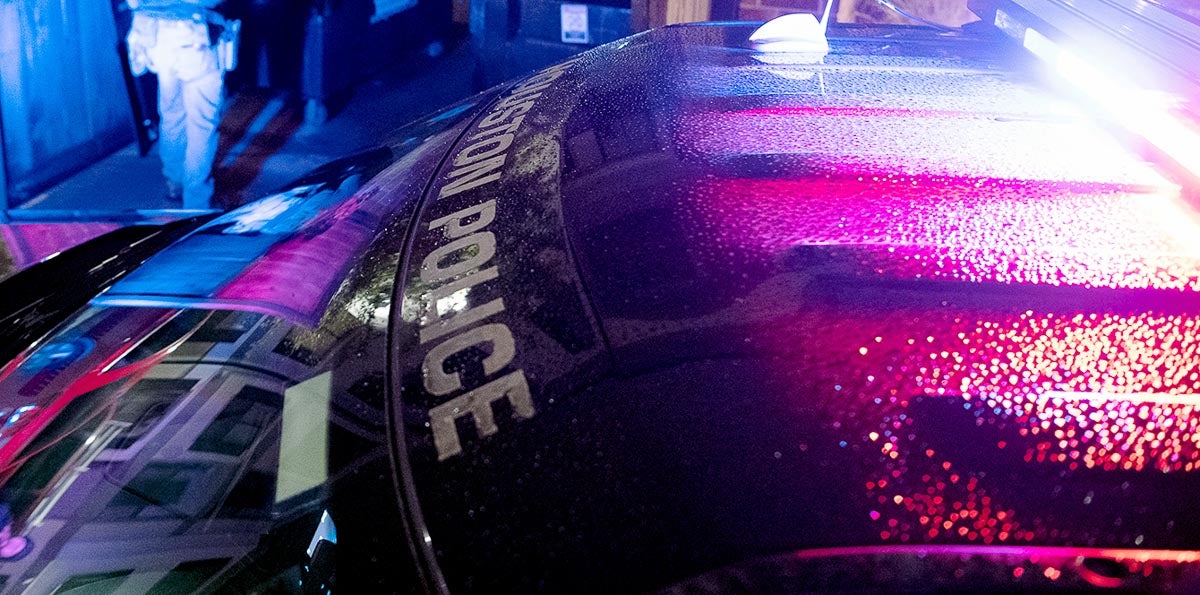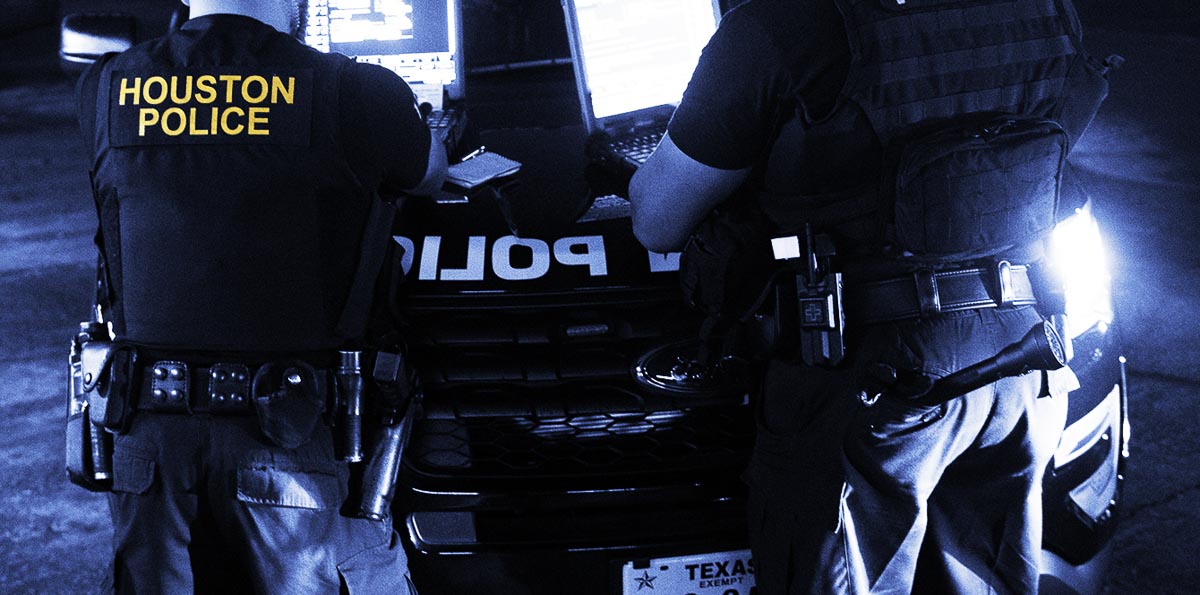In the wake of renewed concern over racial injustice, Houston Mayor Sylvester Turner’s Task Force for Policing Reform delivered a blunt assessment of the Independent Police Oversight Board (“IPOB”), the volunteer civilian board that performs oversight of the Houston police department’s major use-of-force incidents. The Task Force agreed with City Council members who say they have “no confidence” in the little-known board’s current format and said the board must be revamped.
But what might a revamped IPOB look like? The Kinder Institute for Urban Research’s new report, “Who’s policing the police?,” examines citizen oversight of police in the five largest Texas cities: Houston, Dallas, San Antonio, Austin and Fort Worth. Our work grew out of Kinder Institute Director William Fulton’s participation in Mayor Turner’s task force.
We found that Dallas, Austin and Fort Worth are much closer to meeting national standards for citizen oversight, as their police “monitors” have not only independence from the police department but also full-time, professional staff members who don’t just review use-of-force cases but also conduct their own investigations, suggest policy changes and interact directly with the public. Houston and San Antonio, by contrast, lag far behind national standards. (In the report, we used the national standards recommended by the National Association for Citizen Oversight of Law Enforcement, the leading national organization in dealing with citizen oversight of police.)

When most people think of “civilian oversight of police,” what probably comes to mind is the type of volunteer civilian oversight board that’s in place in Houston. Volunteer boards such as the IPOB and its equivalent in San Antonio look at critical use-of-force incidents and (theoretically) issue reprimands to the police. The thinking behind these boards is that holding abusive cops publicly accountable will be an incentive for officers across the department to be fairer and more just with civilians.
Yet, these boards often fall short of expectations. The public expects that the boards will sustain discipline against abusive cops — but usually that’s not even possible (see this article for a useful scholarly review on research on volunteer oversight boards). Civilian boards, in most cases, may only recommend disciplinary guidance.
Also, volunteer civilian oversight boards may not be able to do everything their job demands of them. Anyone who has ever volunteered on a PTA, city commission or church committee knows that community volunteer positions take time. “Just good enough” efforts often must suffice, because the volunteer position is (understandably) a lower priority than a person’s 9-to-5 job and family.
Yet “just good enough” may not be sufficient for critical investigation of a use-of-force incident, which often requires taking witness testimonies (from officers, victims and bystanders), reviewing forensic evidence, and deliberating the best punishment. Therefore, many civilian oversight boards (including those in Houston and San Antonio) off-load these responsibilities to the police’s internal affairs investigators. This immediately violates two key guiding principles for good civilian oversight of police — that oversight agencies should be independent from police and should collect data independently.
Thus, while the common conception of “civilian oversight of police” may be a volunteer review board, “civilian oversight” can also mean civilian professionals in city government doing full-time monitoring or investigative work. Mayor Turner’s task force recommended — among many other changes — that a reformed IPOB should have a full-time, professional staff.
There is precedent for this setup in Texas. As we detail in our report, the oversight agencies in Austin and Dallas have both a volunteer board and professional police monitor staff. In these cities, the boards (among other functions) provide guidance to the professional police monitor staff, directing them to focus their efforts on different policing issues or controversies. (Fort Worth has a full-time monitor but not a volunteer board.)
Oversight staff in these cities do more than examine individual use-of-force cases. Monitors in other cities analyze aggregated use-of-force data, and also data about hiring/promotion or police/community relations in order to make policy recommendations to the chief. For example, Austin’s Office of Police Oversight issued guidelines for police training, with the aim of improving new officers’ historical understanding of racism and policing.
By contrast, Houston’s volunteer IPOB simply reviews cases based on material provided by the police department’s internal affairs division and makes recommendations on disciplinary actions to Chief Art Acevedo. The IPOB has no independent power and operates behind closed doors; even its agendas are not made public. San Antonio’s Complaint and Administrative Review Board is not even independent of the police department — and the board is so little-known that activists and city council members recently demanded that a citizen review board be created, even though one already exists.
In considering how to reform Houston’s IPOB, it’s also important to understand that oversight policy is not only written by city policymakers. Because of the way Texas state law works, oversight policies are also written by (1) state legislators and (2) city and police union representatives at the collective bargaining table. For example, Texas Local Government Code Chapter 143 hinders access to police personnel information, which impedes an oversight board’s ability to issue discipline in a responsible fashion.
Additionally, local collective bargaining contracts between police unions and city officials often contain stipulations that make it difficult to follow NACOLE’s best practices, including, for example, giving officers more preparation time when testifying in independent investigations.
In reforming citizen oversight of police, Mayor Turner should give serious thought to his task force’s recommendations — especially revamping the IPOB and providing it with a professional staff, as is the case in Dallas and Austin. He should also bring citizen oversight issues to the table as the city and Houston’s police union renegotiate their meet-and-confer agreement, which expires at the end of the year. In the post-George Floyd environment, the people of Houston deserve no less.

